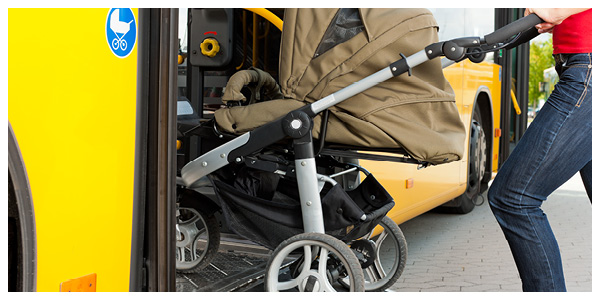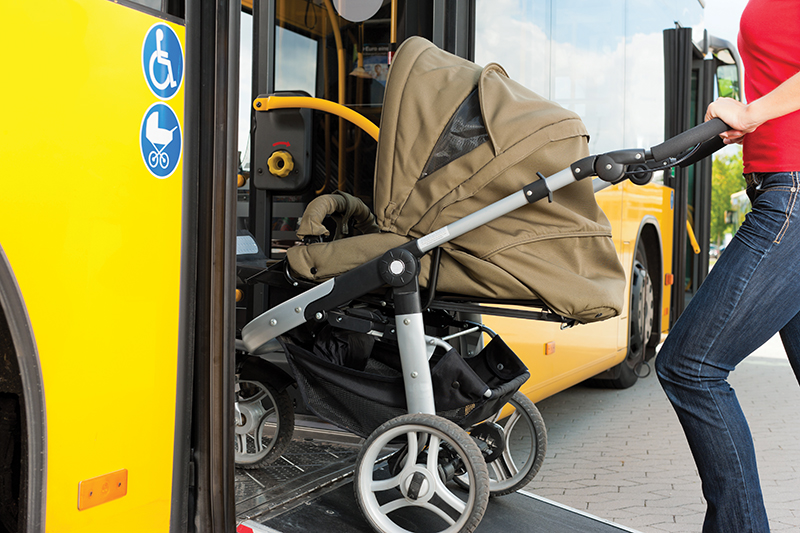by DeVaughn Croxton, Crane Center program assistant working on The Child Care Access Means Parents in School (CCAMPIS) Program
Universities and colleges across the United States have growing populations of student parents. About 22 percent of all student populations in these institutions are student parents, and an estimated 55 percent of student parents raise their children alone. [1] Single mothers number nearly 2.1 million as of Sept. 30, 2019, and most of them are women of color.[1] Some institutions are better situated than others when it comes to having the necessary infrastructure in place to support their student parents, such as family-friendly campus environments and specific resources designed to aid student parents. Through my work as a research scientist, I witness the challenges that student parents face, and I have a unique, personal perspective on the topic as well. My goal in writing this is to bring greater awareness to issues facing student parents and to showcase their unique needs.

of higher education students are parents
My personal experience
I am a proud child of a student parent: My mother had me in her fourth year at Michigan State University. During my years as an adult I have been fortunate to have many conversations with her about what life was like during that time. As a child it was a little hard for me to fully grasp the dynamics of what it meant for my mom to be juggling so much. I just recall that my aunt would babysit me a lot, and occasionally, I would go to child care throughout the week. My aunt was also a student parent; my older cousin is two years older than me. Fortunately, my aunt was also an MSU student at the time, and she and my mom were roommates. I can imagine this made life a little simpler for them both. Carpooling to class together helped a lot, and of course, having an in-house babysitter definitely had its perks.
I have always felt very connected to my mom, but I could see that she had less time to engage with me since she was busy with school. Conveniences that we now take for granted, like internet and basic technology, weren’t available back then. My mom spent a lot of time at the library, going floor by floor to get the books she needed for class, and flattening out books to try to get legible photocopies from the copy machine.
Overall, I was a pretty content child, and I didn’t require much to be happy or keep me busy. I didn’t mind playing by myself, and as long as I had my Scooby Doo toy, all was right with the world. The reality, of course, is that not every kid is as self-sufficient as I was.
My mom recently expressed that she doesn’t regret anything about how life was for us, but she agrees that having certain supports in place would have made life a lot easier at the time. For example, more accessible on-campus child care, more financial support, and more flexibility from her professors would have made a huge difference.
The challenges facing student parents
Student parents express various challenges, such as: campus buses not being conducive to transporting strollers; the trouble of meeting with classmates for group projects during the evening hours; the lack of support/understanding from their professors when it comes to attendance or rescheduling exam times; and the need for affordable drop-in child care on campus. Most institutions may have on-campus child care, but it is very limited in space, too expensive, or doesn’t match the hours they need. Simply put, the supply does not match the demand.
Student parents also have an issue with juggling various tasks. Imagine you have four college classes between 8:30am and 4:00pm, while needing to find time to study in between class for your exam next week, meet your group for that huge project due soon, get your child to school/child care, pick them up on time, make dinner for your family, and do your homework that is due by midnight. Sounds stressful, right? Well, this is a normal day for student parents. Academically, student parents are in a tough position and their grades are likely to suffer as a result.
Obviously, life has its challenges and there is no one solution to solve the struggles I listed above. However, universities could implement a few strategies to help level the playing field for student parents. In the same scenario listed above, imagine there was a facility on campus where you can bring your child throughout the day while you go study, your professors are lenient with deadlines for homework, and there is a transportation system in place designed specifically for parents, especially families with strollers. These are suggestions directly from current student parents. They don’t want special treatment; they just want a fair shot.
The challenges facing children of student parents
As you can imagine, the children of student parents are also affected by the unique challenges their caregivers face. Less time with caregivers can lead to frustration, confusion, and a sense of detachment. During the evenings when they expect to spend quality time with their parents, the priorities of college life may present conflicts. Most people go to college to eventually provide a better life for their families and ultimately have more time to spend with them, but young children can’t fully grasp that. Some of these impacts on children, insofar as parents are juggling a lot and stretched for time, may be inevitable. But we know from research that stress reduction for caregivers can have positive impacts on children. Accommodations to help student parents as they juggle schooling and parenting can go a long way toward curbing the negative impacts for the whole family.
COVID-19
The 2020 pandemic caused from COVID-19 has brought to light the importance of supportive infrastructure within universities. With professors having to panic and switch their entire curriculum to virtual teaching, things have become even more challenging for student parents, and the difficulty in working while balancing child care has perhaps never been so prominent. When once there was a time of relief while their children were in child care or in school, now they are there 24/7. The pressures discussed above are basically doubled due to this pandemic.
Recommendations
There is no one solution to all of these factors but a few changes could help alleviate the problems facing student parents:



– 1 –
An increase in the availability of drop-in child care on campus would be a huge fix to a lot of the things we have discussed so far. Similar to medical buildings or dorms that are on campus, there should be adequate numbers of child care centers to match student parent populations on university campuses. The reality is that student parents will always be a part of almost any college population, and that will likely not change anytime soon.
– 2 –
Family accessible transportation on campus is key. In the same way that there are shuttles or van services for people with disabilities, there should be similar support in place for families with children and strollers. This would add a layer of mobility for parents who need to navigate through campus to get to class, work, group projects, etc.
– 3 –
The final suggestion would be for greater education and awareness for faculty about student parents. This awareness can then translate to better class structures and policies. For example, if I am a college professor that has student parents in my class, instead of a strict attendance policy, maybe I will allow a limited number of allowed absences. In the same regard, I can also communicate with this group of students to create an effective plan so that each party gets the most out of the educational experience. In the event that they might miss an exam date, I would make them take the exam at an earlier time with my supervision. This maintains fairness amongst other students and also helps the student parent with their day-to-day priorities surrounding their children.
Student parents are a growing population in higher education, and deserve more supportive infrastructure to get them to and through the finish line of completing coursework or degree programs. Doing so would help them achieve greater educational and economic mobility, as well as increased options for themselves and their families. As awareness about the challenges of balancing schooling, work, and child care continue to grow, I hope that universities will take the necessary steps to improve their student parent infrastructure.
References
[1] Study International Staff (2019, Sept. 30). 5 Facts and Figures about student parents in the US. Retrieved from https://www.studyinternational.com/news/student-parents/

